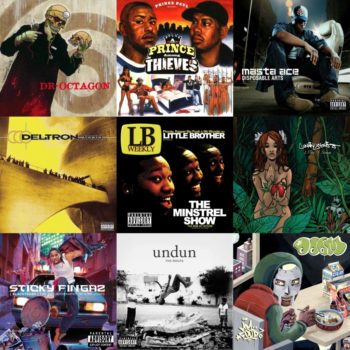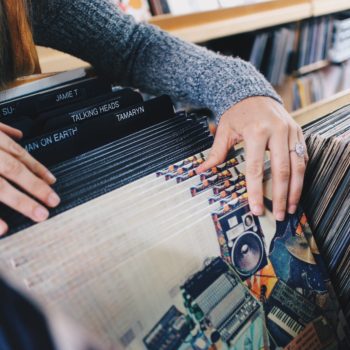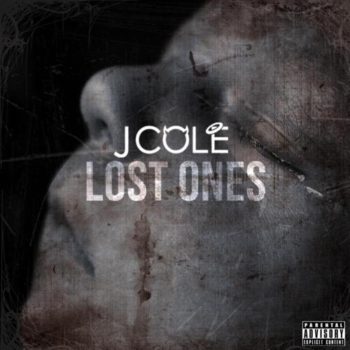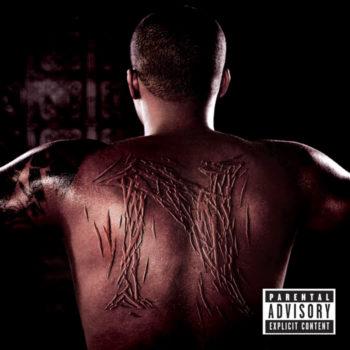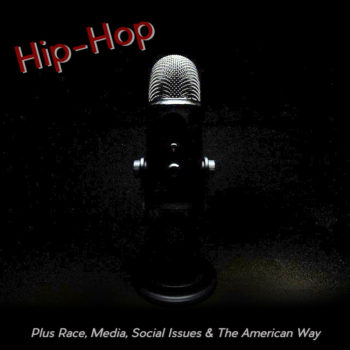164th and Findlay, Bronx New York. It was the earliest time that I can remember getting that first hit of Hip-Hop; the one that keeps you coming back for more. My cousins were battling each other in the bedroom, surrounded by the dusty cartridges of old Sega Genesis games; Street Fighter, Contra, Gunstar Heroes, Streets of Rage. It was a war zone. My aunt had to be cooking up some fried fish and Johnny Cakes in the kitchen, or watching Martin, Living Single or In The House as her loud, bellowing laughter echoed off the walls. She was in a distant world far removed from what was going on just down the hall.
I don’t remember exactly the words that were said, but I remember the aggressiveness, the raw power behind each rhyme, the intent to kill in their eyes. Each line exploded like a bullet from their lips, shrapnel bouncing off the deftly painted walls. There was something else there too.
Respect.

You probably couldn’t tell on the surface with all the ammunition flying through the air, but there was definitely respect between the two of them. Respect for the other’s skills, followed by the knowledge that it was necessary to transform into a better emcee, right there on the spot, in order to come out on top. Someone had to lose, obviously, but in the end each became a better lyricist for all the shots fired. The smoke cleared, pounds were given, and in war came the validation that was necessary, at least for the moment, for two young black men growing up in the South Bronx.
That planted a seed in me that I’ll never forget. I’ve looked back on the battles between KRS-ONE and MC Shan, LL Cool J and Kool Moe Dee, Biggie and Tupac, Jay-Z and Nas,and more, with a renewed take on what it means to be competitive in Hip-Hop.
In this context, I’m not talking about battle rap. I’m not talking about the business end either, where competition lies purely in numbers. I’m talking about the most basic level: Hip-Hop as an art form. It has always been built on competition, but I’ve often wondered is the competition dead? More than that, is it still necessary?
In today’s world, where social media dominates just about everything, the idea of a rap beef has been deemed almost exclusively corny. The one’s that do occur are often comical and seriously short-lived. Competition lies more on the business end of things, where numbers and radio play outshine actual lyrical ability. As a matter of fact, lyricism became such an unnecessary part of Hip-Hop, that it was almost cast aside as being a hindrance to success.
It’s like Jay said, “If skills sold, truth be told/I’d probably be, lyrically, Talib Kweli.”
Competition in Hip Hop is not dead, but the idea of sparring lyrically, the idea of being openly competitive when it comes to rhymes, is about four feet in the ground right now. I’m proud to see lyricists like Kendrick Lamar and poetically driven artists like Wale garnering more and more attention in the mainstream. I’m happy for the Beast Coast movement that has been popping up, shoving lyrically intuitive artists from Pro Era, Flatbush Zombies, World’s Fair, The Underachievers, and more, into the faces of those that might otherwise ignore their prowess. But lyricism, and the notion that Hip-Hop is competitive by nature, doesn’t necessarily garner competition.
 Combativeness in rap is not synonymous with beef, antagonism, hating, or, as it seems to be portrayed nowadays, weakness. It doesn’t have to escalate to the tragedies of Biggie and Pac. It doesn’t have to be stoically passed off as someone seeking attention. Competition is necessary because it pushes artists to be better emcees, and so by it’s very nature, pushes the art form as a whole to improve. People often complain that rappers don’t care about lyrics anymore. I argue that no one has provided them a reason to.
Combativeness in rap is not synonymous with beef, antagonism, hating, or, as it seems to be portrayed nowadays, weakness. It doesn’t have to escalate to the tragedies of Biggie and Pac. It doesn’t have to be stoically passed off as someone seeking attention. Competition is necessary because it pushes artists to be better emcees, and so by it’s very nature, pushes the art form as a whole to improve. People often complain that rappers don’t care about lyrics anymore. I argue that no one has provided them a reason to.
There are two things that every person seeks, whether they want to admit it or not: validation and respect. In Hip-Hop, artists seek validation by way of the respect they desire to earn. This is the reason why rap songs are infused with the materialism, misogyny, and violence that has become so inherent in Hip-Hop culture. Respect is sought by flashing trophies that are held as tangible proof that an artist has more than the next man, instead of the self-validation that comes with being pitted against a fellow lyricist, and besting him. Materialism provides a shallow validation that will always be perceived, and therefore substantiated, through the eyes of others.
True competition renders self-respect, and respect for the opponent, necessary before it can rest on the laurels of an audience. An artist must know that he can beat his opponent before he is actually able to do so, and if he loses, he knows that it’s time to step his game up. This is an inner-validation that is often substituted with songs about materialistic wealth and the perception of a rich lifestyle that is usually one half of the story. Egos go unchecked and skills go untested, leaving an environment where success is not measured by skill, but by an artist’s ability to do what his label asks of him.
Here’s the thing. I’m not knocking songs that are made specifically for radio or club play. In certain settings, those things are necessary. But I know I’m not the only one who has watched a cipher, and felt the raw energy dripping from every word spit around the circle. I know I’m not the only person who has traded rhymes back and forth with a friend, or has listened to two popular rappers featured on the same song, and debated with someone about who had the hotter verse. Competition is necessary because it begets validation at it’s most basic level – within the heart of the person spitting – without having to rely on bragging about materialistic things that only bring approval so long as the artist can keep up the illusion that he exclusively lives that lifestyle.

That type of life is unrelatable to the average person. What we end up with is an environment in which the validation becomes more important than the means by which it’s achieved. There are people who will buy an iPhone before they pay their light bill, an expensive car before they’re able to put food on the table for their families, or will brag about putting in work before ever lifting a finger all in the name of being able to boast on Twitter, creating an illusion in an attempt to achieve distinction through the eyes of others. Competition creates a setting where artists are forced to prove themselves first and foremost, and gives true skill the weight it deserves, creating a concrete validation that can’t be taken away once people discover that he really doesn’t have thirty Phantoms sitting outside.
My cousins battled each other, and in the end still came out of it with mutual respect. Jay-Z and Nas did the same, on a bigger scale, and they’ll be remembered for how their music, and their feud, contributed to Hip-Hop in a way that really tested the skills of both artists. Through competition, they achieved self-validation, and a respect that will go down forever in Hip Hop history.
The cars and chains that most artists brag about having will be old news next week.

